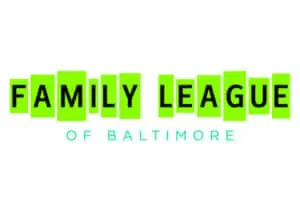 This blog is authored by Kim Eisenreich as part of a series on seven principles of effective data sharing. Eisenreich uses the example of The Family League’s work in Baltimore to illustrate that guide’s observation that “most communities don’t need more systems; they need more system integrators.”
This blog is authored by Kim Eisenreich as part of a series on seven principles of effective data sharing. Eisenreich uses the example of The Family League’s work in Baltimore to illustrate that guide’s observation that “most communities don’t need more systems; they need more system integrators.”
Like many cities, Baltimore has a plethora of collective impact strategies to improve outcomes for its citizens that have not always historically worked together. From Boston to Oakland, from Saint Paul to Dallas, cities across the country are wrestling with how to coordinate place-based initiatives, measure impact, streamline resources, and achieve better outcomes for children, youth, and families. The need for better data are at the heart of the kind of rigorous collaboration these initiatives envision—and in Baltimore there is growing recognition that, to get these initiatives the answers they need, our challenge will be to connect our existing pockets of excellence rather than building a whole new suite of technologies.
In every city today, bits and pieces of information about the children we serve are trapped in numerous institutional “silos.” These silos each hold a page of information that when put together tell an important story—one that is specific to each child and gives crucial clues to that child’s teachers, counselors, and parents about the kind of support and enrichment we can provide for them to thrive. While our goal in Baltimore is eventually to dissolve these silos and keep those “pages” of each child’s story together, the reality is we need to first identify all of the systems in play, to understand the barriers that currently prohibit organizations from sharing what they know, and ensure that the information we do have is accurate, protected, and being used to support our community’s kids.
In Baltimore we are fortunate to have a wealth of data rich collaborations and organizations including the Baltimore Neighborhood Indicators Alliance, Baltimore Education Research Consortium, Baltimore’s Promise, B’More for Healthy Babies, Baltimore City Opportunity Youth Coalition, Grade Level Reading Campaign, and Family League of Baltimore just to name a few. The individual work these entities are doing are the vital foundation for a truly comprehensive set of supports for the city’s youth, with information shared and used across neighborhoods and institutions. For the whole to serve kids better than the sum of these parts, requires that we generate the political will to share our records, build champions among critical stakeholder groups, map our data ecosystem and—crucially—identify the questions that are “mission critical” to our schools, families, and youth service providers.
Family League of Baltimore is working strategically with many of these organizations to streamline the work, connect dots, and align efforts. For example Family League is working with the Baltimore Grade Level Reading Campaign and Baltimore City Public Schools to not only align data sharing agreements, but to also align performance measures and outcomes among the different partners and coalitions. Family League is also working with many of these same partners to chart our current data ecosystem: what data is being collected by each organization, with whom the data is being shared, and what legal and technical factors constrain this sharing. As the work continues to move forward we are identifying gaps in our knowledge and problem solving to see how we can help to fill those gaps, adding to the richness of the ecosystem rather than duplicating efforts.
As much as we are collaborating city-wide, we are also trying to link our own data systems within Family League. Family League houses B’More for Healthy Babies, the Family Literacy Coalition, which are both partnerships with the city Health Department, the Community School and Out-of-School Time strategy, and the Baltimore Attendance Collaborative. Each coalition or strategy has its own theory of change and performance framework. Family League bases its work around a continuum that starts before a child is born and ends when they graduate from high school and transition to college and/or career. Throughout our history of serving Baltimore’s children Family League has filled may roles in the community, such as grant maker, program designer, convener, data collector, evaluator, and direct service provider. Ultimately we are driving towards improved outcomes for children and youth. Our strategic approach in leading collaborations allows us to identify initiatives through data analysis and issue research while considering whether a clear outcome can be measureable.
While there is a well-articulated theoretical process for integrating data systems, as a city we recognize the implementation of that process is not always the ideal sequence and includes lots of starts and stops. However, we remain steadfast in our long-term vision for a Better Baltimore that includes breaking bureaucratic silos, new ways of collaboration and integrating critical data so we can better serve our children, youth and families.


